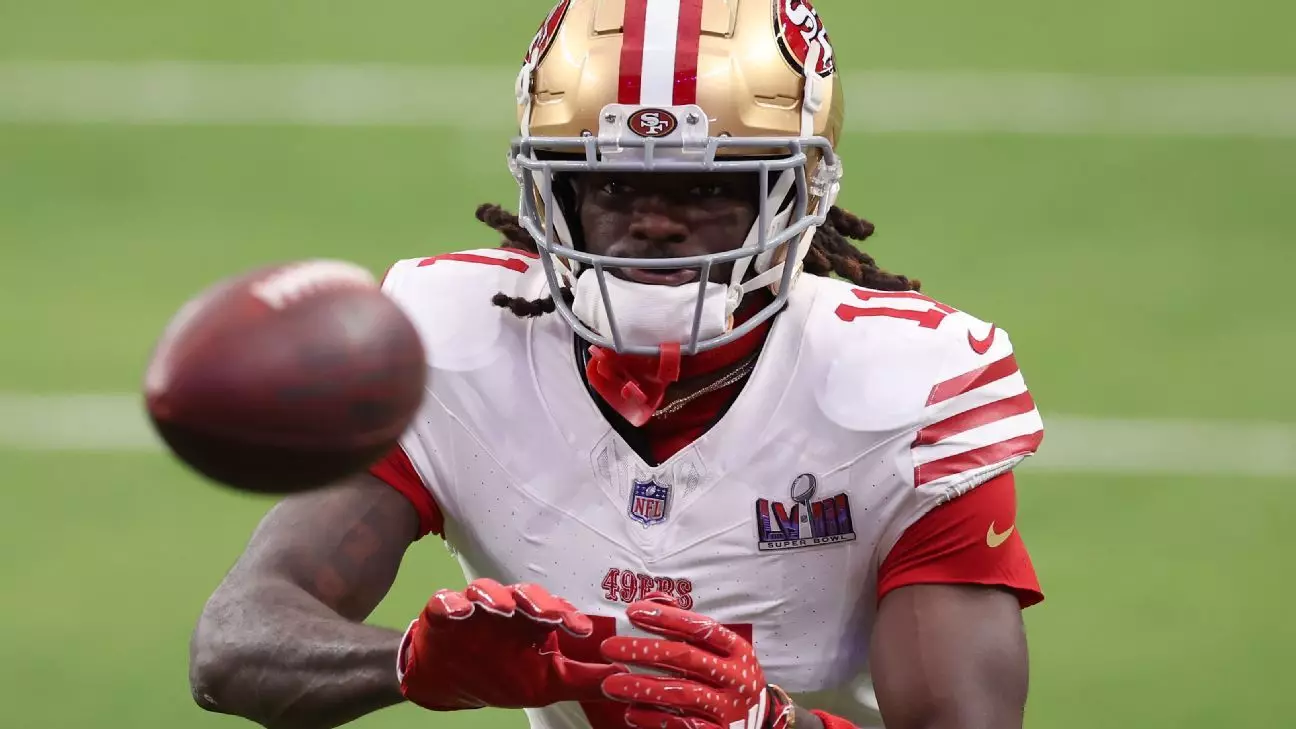The contract negotiations between San Francisco 49ers wide receiver, Brandon Aiyuk, and the team have been described as one of the most turbulent and public in recent memory. Aiyuk himself acknowledges that he made the negotiations more difficult towards the end. His comments suggest that the process was challenging, primarily over the past month leading up to the eventual signing of his four-year, $120 million contract extension.
Impact on Team Dynamics
During the negotiation period, Aiyuk took to social media to express his grievances, applying pressure to the Niners to close the deal. His actions, such as skipping team activities and requesting a trade, created tension between him and the team. Aiyuk’s admission that he played a role in prolonging the negotiations raises questions about how such actions could impact team dynamics and player relationships.
Strained Relationships
Aiyuk’s “hold in” during which he attended meetings but did not practice, highlighted the strained nature of the negotiations. The disconnect between Aiyuk and his teammates, who were preparing for practices without him, underscores the potential consequences of contract disputes on team unity. Aiyuk’s acknowledgment of the awkwardness he felt during this period raises concerns about the impact of individual contract negotiations on the collective team environment.
Decision-Making Process
Throughout the negotiations, Aiyuk and the Niners considered trade offers from other teams, indicating a lack of certainty about their future together. Aiyuk’s reflections on having to “get his mind right” for the possibility of a trade suggest a level of internal conflict and decision-making stress. The near separations with teams like the New England Patriots and the Cleveland Browns point towards a rocky road in the negotiation process.
Despite the challenges and uncertainties, Aiyuk ultimately expressed his desire to remain with the 49ers, citing personal values and loyalty as driving factors. His connection to the team, rooted in his hometown, played a significant role in his decision to stay. Aiyuk’s emphasis on factors beyond financial gain reflects a deeper sense of commitment and attachment to the team and its values.
With the contract negotiations behind him, Aiyuk now faces the pressure of meeting high performance expectations. As one of the highest-paid wide receivers in the league, he acknowledges the need to exceed his previous accomplishments. The added financial incentive to perform at a top level places Aiyuk under increased scrutiny and raises the stakes for his on-field performance.
Overall, the analysis of Brandon Aiyuk’s contract negotiations sheds light on the complexities and challenges that arise in high-stakes negotiations between players and teams. The impact on team dynamics, individual relationships, decision-making processes, personal values, and performance expectations reveals the multifaceted nature of contract negotiations in professional sports. Aiyuk’s journey serves as a cautionary tale, illustrating the importance of communication, collaboration, and alignment of interests in securing mutually beneficial agreements.


Leave a Reply